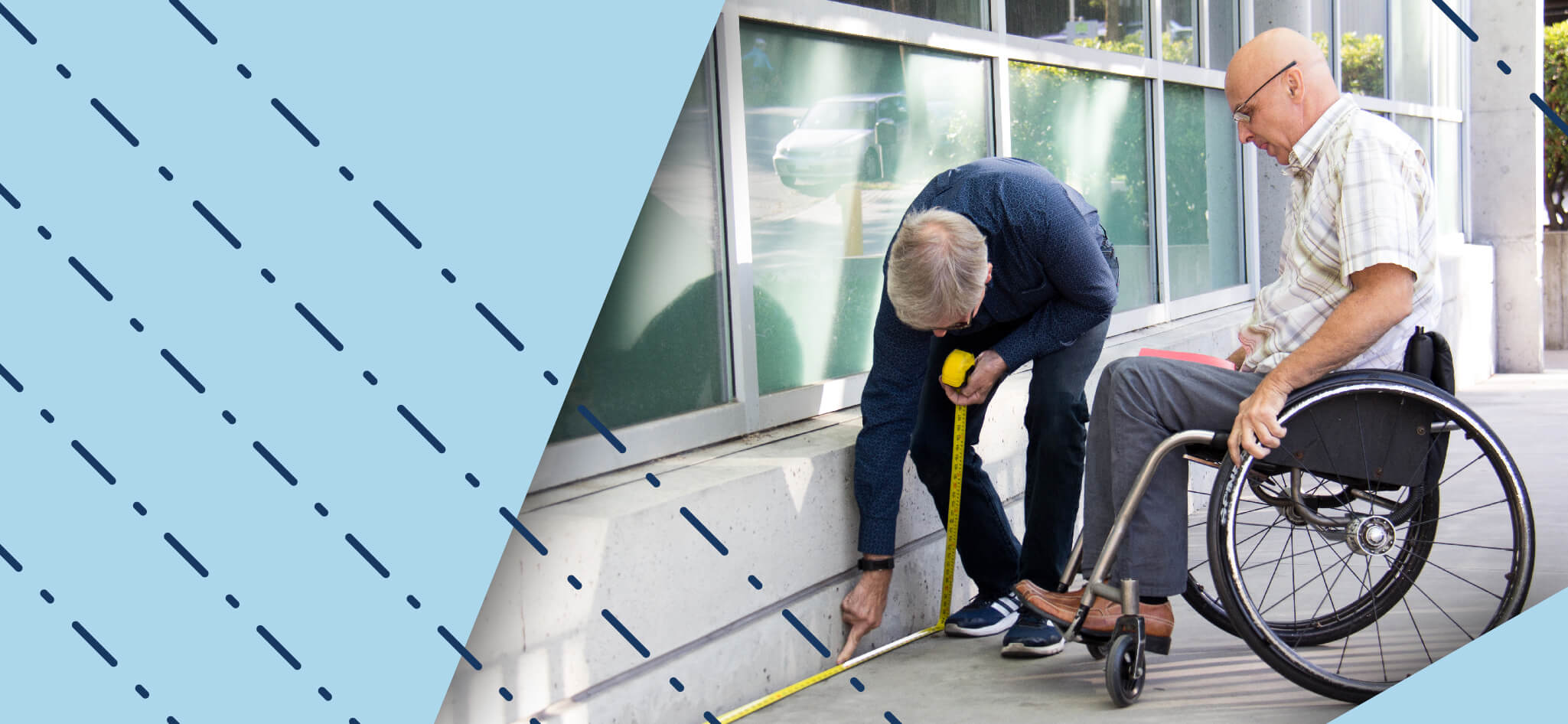

Making spaces more accessible
A world everyone can access is more equitable for all
Accessibility isn’t about somebody else, it’s about you, your friends, your family, and how you can and should be able to interact with the world around you.
In Canada, an Angus Reid Institute study shows almost 50 per cent of adults have or have experienced a permanent or temporary physical disability or live with someone who has.
“People with disabilities are the largest minority group in the world and the only one that anyone can join, literally, at any moment,” says Brad McCannell, vice-president of access and inclusion at the Rick Hansen Foundation.
“Whether it is a twisted ankle on a set of stairs, a car accident, a medical issue—anything could happen at any time and suddenly you’re a member of my community.”
In order for everyone to participate fully in society, it is integral to understand how to make physical and digital spaces around us more accessible. That’s what PowerED™ by Athabasca University’s partnership with the Rick Hansen Foundation is about.
RELATED: PowerED™ by AU launches online Rick Hansen Foundation Accessibility Certification™
Making spaces more inclusive now
When spaces are not accessible for people with diverse abilities, it creates barriers to equitable participation in society. Back-door access because there are no ramps at the main entrance, counters that can’t accommodate all patrons, or lack of braille are all common examples of inaccessible spaces. “It’s just not acceptable,” says McCannell.
The first thing people can do is to get educated.
PowerED™ by Athabasca University has partnered with the Rick Hansen Foundation to offer the Rick Hansen Foundation Accessibility Certification™ program online.
“These courses help introduce people to the concept of accessibly and how it affects the whole community,” he says.
RELATED: Rick Hansen Foundation and PowerED™ by AU partner to offer “Accessible Spaces 101” online course

A barrier to a person with a disability is a barrier to everyone
Spaces that are accessible allow everyone to participate fully in society, from an access and a basic human rights perspective.
For facility owners, leaseholders, and operators, ensuring spaces are accessible also makes sense from a business perspective, McCannell said. A Conference Board of Canada report found that 57 per cent of people with disabilities are either under-employed or unemployed.
“Right now, when there is such a shortage of workers, accessible spaces mean you have access to a highly skilled, highly trained, and highly available workforce.”
PowerED’s newest online and on-demand course, Accessible Spaces 101, is a great place to get more informed about how building design can improve accessibility.
Learn more about the Rick Hansen Foundation Accessibility Certification Training or Accessible Spaces 101 today.